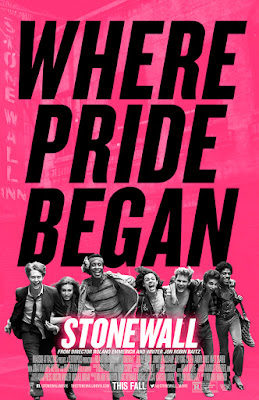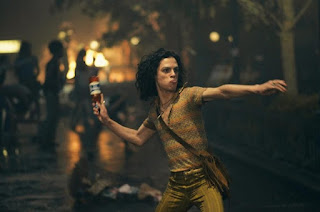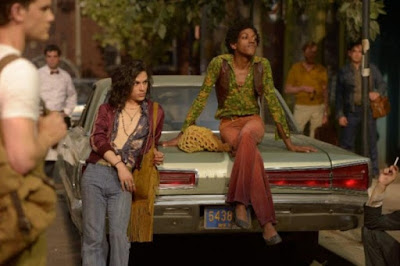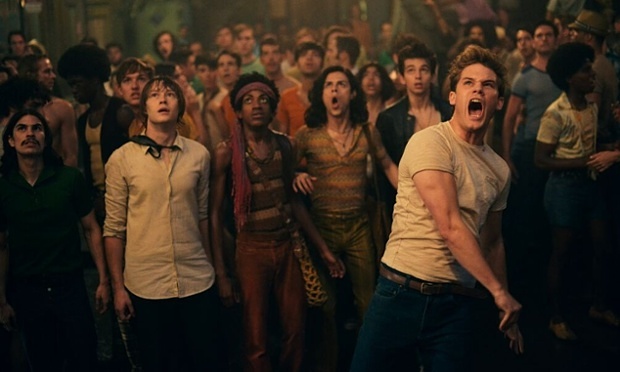According to the account from historian David Carter, author of ‘Stonewall: The Riots That Sparked The Gay Revolution’ then Emmerich’s take on it all is well rooted in facts. Carter wrote “My research for this history demonstrates that if we wish to name the group most responsible for the success of the riots, it is the young, homeless homosexuals, and, contrary to the usual characterizations of those on the rebellion’s front lines, most were Caucasian; few were Latino; almost none were transvestites or transsexuals; most were effeminate; and a fair number came from middle-class families.”
 With the movie’s imminent US release there is a real danger that many in LGBT community will continue to judge it harshly simply based on the rumors rather than on it’s own merit, which is indeed a shame. As although Emmerich’s fictional narrative is by no means a documentary on the events leading up to that fateful night in 1969 it is a strongly political based drama that will resonate with younger audiences in particular as it gives a real sense of what went down and help paved the way towards social acceptance and equality.
With the movie’s imminent US release there is a real danger that many in LGBT community will continue to judge it harshly simply based on the rumors rather than on it’s own merit, which is indeed a shame. As although Emmerich’s fictional narrative is by no means a documentary on the events leading up to that fateful night in 1969 it is a strongly political based drama that will resonate with younger audiences in particular as it gives a real sense of what went down and help paved the way towards social acceptance and equality.
They include Queen Cong, Little Orphan Annie, Quiet Paul and Lee and they know everything that is going down on what they consider is their turf, and all the other players in the hood including the fabulous Marsha P Johnson who was an African-American drag queen who in real life went on to be a major force in gay activism after the Stonewall riot.
The night of riots which Emmerich shows as an unexpected Police Raid ….. they had their regular one arranged by the corrupt Precinct two nights earlier …. was intended to finally capture the illusive bar owner, but it went all wrong and when the drag queens and lesbians were hauled to the paddy wagon to be carted off, the crowd started to fight back. (Gay guys or girls not wearing some sort of drag were always allowed to leave if they had ID). He actually combined several nights of riots into one but asides from that whether he got it factually correct or not, the scene plays out powerfully, and he captures a real essence of how scary and exhilarating the events of were, and how nothing would ever be the same again.
 Stonewall works well as a coming-of-age story of this young country boy albeit even when the going gets rough and dirty Danny still looks like an Abercrombie poster boy, and although trying to get such a good cross-section of Christopher Street characters of that period, Emmerich relies a little too much on some cliched stereotypes.
Stonewall works well as a coming-of-age story of this young country boy albeit even when the going gets rough and dirty Danny still looks like an Abercrombie poster boy, and although trying to get such a good cross-section of Christopher Street characters of that period, Emmerich relies a little too much on some cliched stereotypes.
For Danny there was a ‘happy ever after’ moment when a year later he takes part in the first ever Gay Pride March through New York watched by his baby sister and his previously unforgiving mother. As the credits role we learn how it finished up for others such as Seymour Pine the ‘good cop’ who later apologized for the Raids, and for Marsha P Johnson who achieved so much as an activist before she had a very tragic death.
Emmerich’s movies to date have been mainly big budget blockbusters that have grossed something like $3 billion worldwide. To make this independent movie though he actually put his money where his mouth is and financed it himself which sits well with us. He may not see much of that money back if the post reviews are as angry and harsh as those that surfaced before even a single frame was seen, but that would a great injustice and we are more than happy to recommend this rather engaging motion picture to those with an open mind and who are just really wanting to be entertained.
Labels: 2015, coming of age, drama, dramatized real-life, gay

